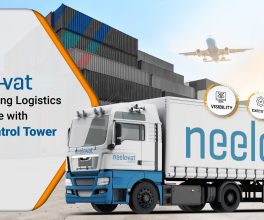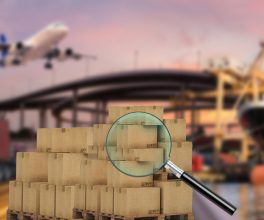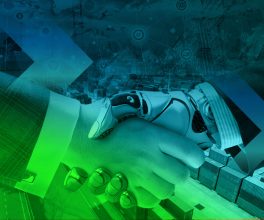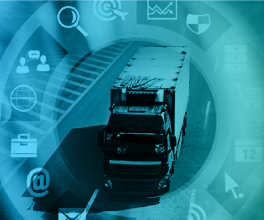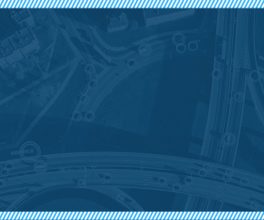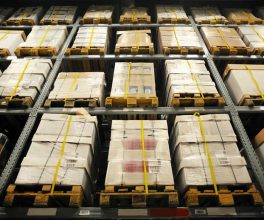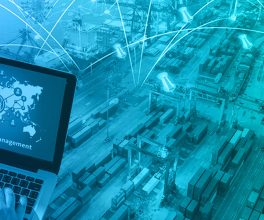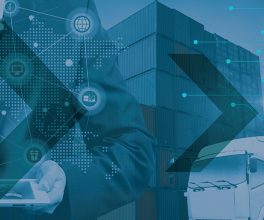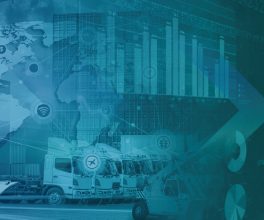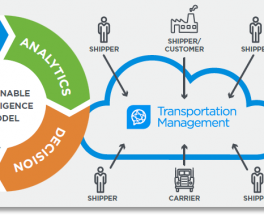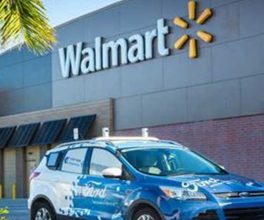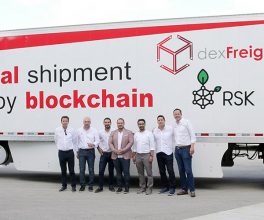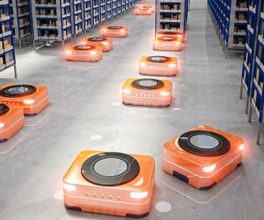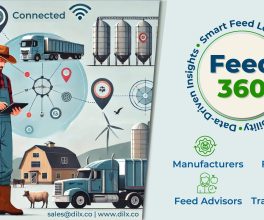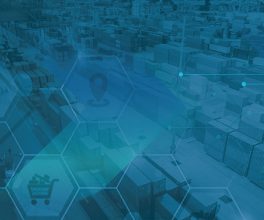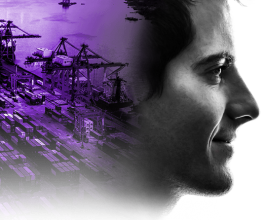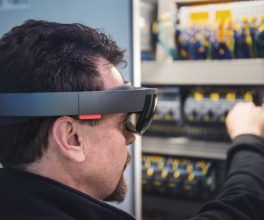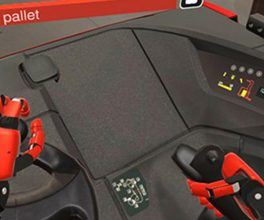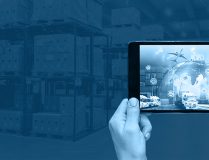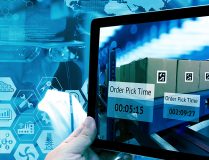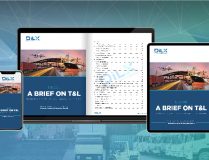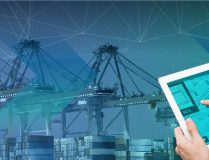Traditional players in the logistics industry risk becoming irrelevant unless they embrace change in order to deliver more customer-centric services. Supply Chain Digital examines the findings of a new report by Accenture, which offers businesses advice on how to upgrade digital logistics strategies, calling on companies to raise their game and prepare to disrupt
Newcomers primed by digital transformation are transforming traditional working relationships in the freight and logistics business. Leveraging big data and built-on cloud and connected platform technologies, they offer customers a seamless experience comparable with the consumer pathway: ease of access, clear pricing and near real-time integrated service.
Meanwhile, industry incumbents are stuck in a mostly manual ‘business as usual’ mode and risk loss of competitiveness and value from their operations.
However, according to a recent report by Accenture on digital disruption in freight and logistics, if traditional players embrace digital adoption and harness the power of new technologies to build new digital business models, they could not only enhance their competitiveness, but also boost earnings by approximately 13% per annum.
Accenture warns that the incursion of agile new entrants into the freight and logistics value chain are set to fragment it with new customer-centric business models. For example, online marketplaces can connect shippers directly with Logistics Service Providers (LSPs) and carriers for instant quotes, with the business intel to manage contracts and automate processes. This threatens the position of freight forwarders as the system’s main capacity brokers.
Advice
If a business thinks it’s time to raise the game to meet customer-centric requirements, what’s the best way to begin challenging these disruptive insurgents? “Digitising their operational processes will help incumbent players rise to the challenge posed by platform-based pricing models and remain competitive,” says Accenture. “But they also need to seize the value-generating opportunities that the application of new technologies delivers.” Accenture believes that eight digital technologies, at varying stages of maturity, are especially disruptive, with each capable of changing the industry while delivering necessary transformation.
Blockchain – this secure data distribution and validation technology improves shipment visibility and brings trust into the sale and movement of international cargo.
Augmented reality – this will revolutionise the picking, packing and commissioning processes in warehouses and crossdocking areas. If the technology is not applied, handling costs won’t be competitive and will lead to margin decrease.
Robotics – Robotics process automation will increase the automation level to almost 100% in the transport planning and customer invoicing processes, leaving almost no activities to human beings in the future.
Autonomous logistics – a driverless way of bringing goods from A to B will revolutionise the industry by eliminating dependency on the human factor. Data collected via sensors, (radio-frequency identification RFID), barcode and remote devices along the entire value chain will be a make-or-break capability.
Digital platforms – these change the revenue mix by enabling both physical and virtual product offerings that do more than handle products from one point to another. By giving clients insights along the supply chain, digital platforms also enable the optimisation of other parts of the business.
Big data analytics – with data from the entire ecosystem, this will provide a whole new set of information that enable 3PLs (third party logistics) to strongly drive operational efficiencies through a higher utilisation of assets.
SaaS (Software as a Service) core solutions – standardised and easy to deploy and parametrise applications replace monolithic bespoke core applications that were used in freight and logistics, driving operational agility into the business.
3D printing – this will significantly boost the decentralisation of finished goods production, not only changing today’s transport volume, but also allowing the horizontal integration of additional value chain activities, thereby extending a product portfolio.
Advice for business…
Accenture maintains the application of these technologies can offer those struggling to adjust to digital disruption access to a diverse range of new business models capable of realising significant value-generation opportunities. Choosing the right mix from these seven business models, identified in Accenture’s report, is key to defining your strategic goals, and the following advice is offered:
Digital sales – actively engage and leverage existing online freight platforms with differentiated service offerings to get access to new clients and spot markets. Use internal sales and customer analytics to analyse existing clients’ shipping behaviour and develop proactive sales initiatives.
Customer specific platforms – customer specific platforms are the one-stop-shop for all customer information and interaction: quoting, shipping information, ordering, tracking and tracing and billing. By integrating analytics, the platform provides customisable reporting features to help clients improve logistics planning.
3D print farm – set up 3D-printing centres at critical geographic nerve centres to supply clients with finished/semi-finished components, printed through the LSP as contract manufacturer.
Matchmaker – establish and grow an online freight platform through the company’s own knowledge and global expertise, allowing a many-to-many buyer-seller relationship – either through development or partnerships.
Holistic supply chain management – increase service offerings along the complete value chain of LSP clients – up and downstream. Offer proactive solutions, based on big data and analytics and combined with external data to provide actionable insights for clients’ strategic business planning, forecasting and proactive risk management.
Forwarding execution specialist – provide clearly defined service offerings, focusing ‘physical’ transport execution (consolidation, packing, labelling, pre-carriage, on-carriage, documentation, etc.) on online platforms. To enable competitive prices on such platforms, LSPs need to use automation extensively – physically, within warehouses/yards, and virtually, along business processes to optimise operating cost.
Smart capacity optimisation – utilise smart assets (containers, ships, trucks, aircraft, trains, etc.) to enable IoT services for the logistics ecosystems as an additional service offering and to radically optimise the company’s capacity planning and management.
So how will these new business models unlock value? Accenture explains: “Some digitise the customer experience; others, operations; and still others facilitate scalable ecosystems of partnerships, including competitors, with the power to optimise supply chain services.” The report maintains the key to maximising value generation will be to “deliver new capabilities that customers find easy to consume – either via easy-to-use platforms and online sales capabilities, or by leveraging match-making capabilities to provide completely digital services”.
Accenture’s research concludes that exploring the potential for business model adjustments will enable a diverse range of market players (including freight forwarders, contract logistics specialists and carriers) to achieve a positive impact on their EBITDA (earnings before interest, tax, depreciation and amortisation) by as much as 5%. This was based on the fictitious reference of a freight and logistics company with an industry average net revenue of $17.75bn and $643.43mn in EBITDA as a starting point for hypotheses, refined by interviewing startups in the industry, then tested by a group of 15 Accenture logistics industry experts. The impacts were subsequently ‘blind’ peer reviewed by other experts for objectivity.
Accenture preaches the importance of accepting the need for change: “Digital capabilities are critical to meeting the challenge of digital disruption successfully. We believe that incumbents need to consider and drive this ‘rotation to the new’ as a conscious and deliberate act of renewing and transforming their core business, while growing into new businesses and services.” In a separate Industry 4.0 study, recently carried out by Accenture, the percentage of transport and logistics companies that rated themselves ‘advanced’ on digitisation was just 28%, so there’s still some way to go.
Allied to this, the report findings highlighted no incumbent can afford to postpone the move to digital: “Over the next three to five years, a combination of new competitors, rising customer expectations, and a shift in global trade routes will force traditional intermediaries to transform – or lose relevance.”
Author – By Dan Brightmore
Courtesy of https://www.supplychaindigital.com/technology/how-companies-can-embrace-digital-disruption

